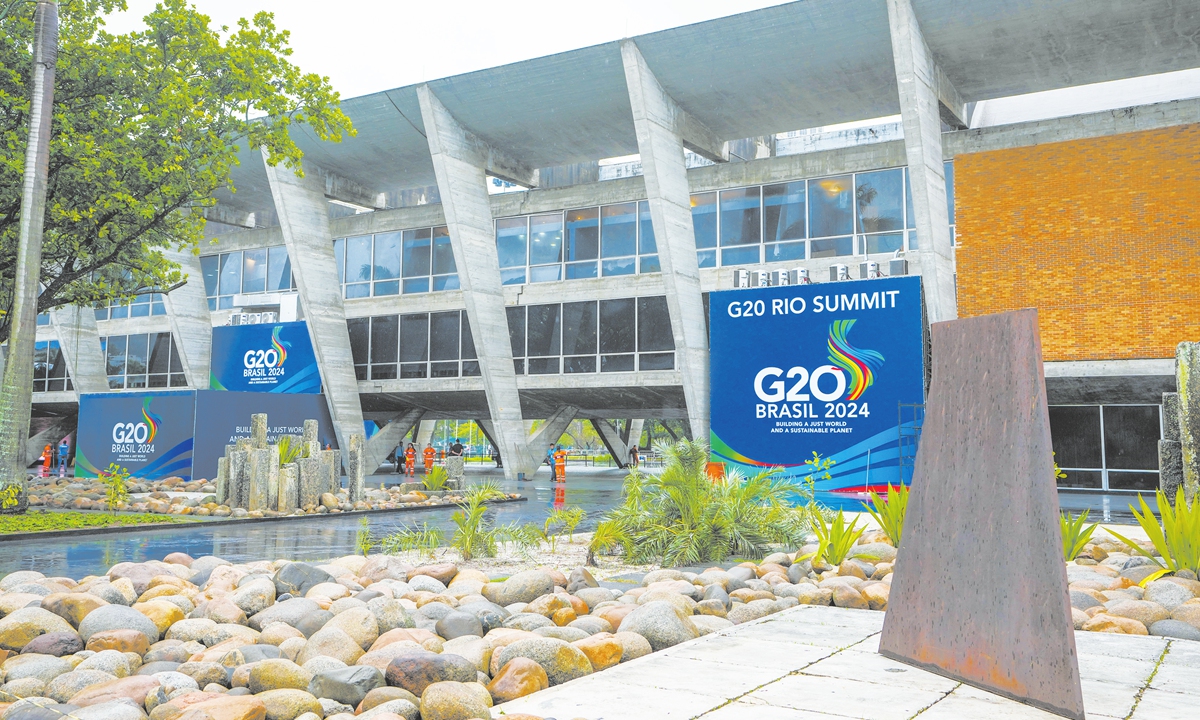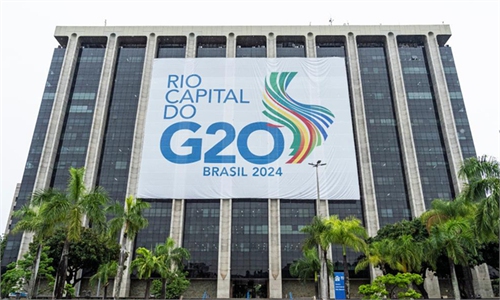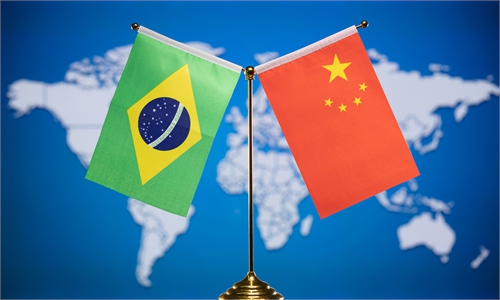
Boards are prepared ahead of the G20 Leaders Summit with the theme "Building a just world and a sustainable planet" in Rio de Janeiro, Brazil, on November 16, 2024. Photo: VCG
Currently, the interconnectivity and infrastructure among South American countries remain underdeveloped. Flying from Colombia to Florida is often cheaper than to neighboring Brazil. This highlights significant logistical challenges that impede regional travel and trade. Improved infrastructure would enable more efficient connectivity and strengthen economic ties within the continent.
Nearly half of Brazilian exports are agribusiness, with China being the top destination between July 2023 and July 2024. If Brazil gained access to the Pacific Ocean, potentially through ports in Peru, such as the Chancay Port project built by China, this could substantially boost Brazil's agricultural exports to China.
The Routes for South American Integration aims to strengthen logistics and trade links between Brazil and its neighboring countries. It is also directed toward the Chancay Port, which offers Brazilian products access to the Asian market, especially to China. The Brazilian government is dedicated to advancing this ambitious initiative for regional integration to boost the competitiveness of Brazilian exports.
The potential integration of bilateral development strategies offers Brazil opportunities to advance regional integration and gain access to the Pacific market. This development also facilitated Brazil's invitation to participate in the Asian-Pacific Economic Cooperation (APEC) for the first time this year in Peru, highlighting Brazil's increasing participation in international platforms like BRICS and the G20, where the nation plays a significant role in addressing key issues like global warming and poverty alleviation.
Currently, Brazil ranks 108th in terms of infrastructure quality in the world, with inadequate levels. Brazil has shown great interest in collaborative development with China, evidenced by the support of President Luiz Inacio Lula da Silva and Agriculture Minister Carlos Favaro for deeper bilateral cooperation.
There are new proposals in Brazil to align its new Growth Acceleration Program (PAC), a nationwide infrastructure building program, with BRI projects to attract significant investment from China. As China remains Brazil's largest trading partner, there is potential to integrate PAC and BRI, fostering closer alignment between the two nations. This synergy could drive critical infrastructure improvements for economic growth, despite external pressures and global volatility.
Economic progress is expected to enhance the quality of life for many. Brazil and China's economies complement each other, and so do their Global Governance initiatives. Brazil receives the highest level of Chinese investment in South America, mostly in energy structure.
Their cooperation can improve the infrastructure of South America, benefiting the Brazilian market to access the Pacific, and with that also increase the interrelation of the market inside the continent, improving job creation and economic development in the region.
China arrives with proposals, delivering tangible projects that showcase the benefits of cooperation. We have benefited for a long time as the country that most received Foreign Direct Investment from China in Latin America. This demonstrates concrete action, not empty rhetoric, creating mutual benefits - a win-win situation for both parties involved.
Amid the greater synergy of both sides' economic development, Brazil-China trade exchanges are set to grow steadily. Furthermore, the two countries have enhanced their ties through cooperation within frameworks such as BRICS, which signifies a resilient partnership that goes beyond individual circumstances.
Some Western countries are now focused
on trade tools that can strengthen their industrial and supply chains. These
tools apply to products made by Chinese companies in other countries, such as
Mexico and Brazil, which resemble economic restrictions or sanctions. These
indicate a restrictive and confrontational rather than open market approach.



